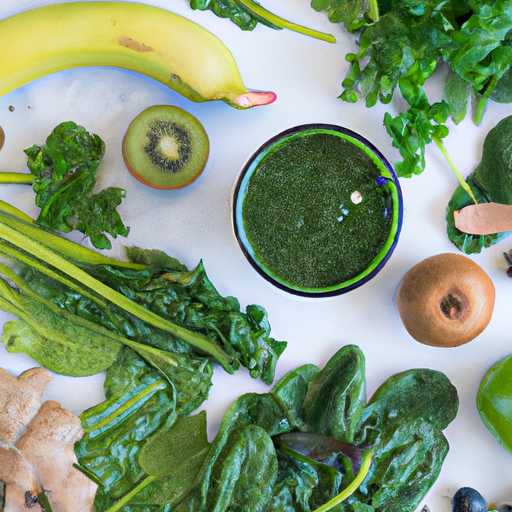As a person constantly in search of methods to enhance my health, the recent attention on turmeric tea caught my interest. This classic beverage from India has become increasingly popular lately due to its potential health advantages, such as decreasing inflammation and warding off chronic illnesses.
But what happens if you drink turmeric tea everyday? Is it really a miracle elixir or just another passing trend?
After doing some research, I discovered that there are indeed many potential benefits to drinking turmeric tea daily. From improving digestive health to boosting mental clarity, this spice-packed beverage may have more to offer than meets the eye. However, as with any supplement or dietary change, it’s important to consider both the potential risks and rewards before making it a regular part of your routine.
Key Takeaways
- Drinking turmeric tea everyday may provide a range of health benefits, including improved digestive health, mental clarity, joint health, and reduced risk of chronic diseases.
- To consume turmeric tea safely, it is important to do so in moderation and under the guidance of a healthcare professional if you have underlying health conditions or allergies.
- Recommended dosages for optimal benefits are approximately 500-2,000 milligrams of curcuminoids per day, and excessive consumption may lead to adverse effects such as digestive issues and an increased risk for kidney stones.
- While turmeric tea has potential benefits for weight loss, immune function, anti-cancer properties, and skin health, it may interact with certain medications and health conditions and can cause gastrointestinal discomfort and liver damage in some individuals.
The Health Benefits of Turmeric Tea
If you’re looking to improve your overall health, drinking turmeric tea every day can provide a multitude of benefits. Turmeric has been shown to boost the immune system and prevent cancer, making it an excellent addition to any healthy diet.
Turmeric contains a powerful compound called curcumin, which is responsible for many of its health benefits. Studies have found that curcumin can help reduce inflammation in the body, which can lead to improved joint health and reduced risk of chronic diseases such as heart disease and diabetes.
In addition to its anti-inflammatory properties, turmeric tea also appears to be good for brain function and digestion. Some studies have found that consuming turmeric regularly can improve memory and concentration, while others suggest that it may help relieve symptoms of digestive disorders such as irritable bowel syndrome (IBS).
While there are many potential benefits of drinking turmeric tea every day, it’s important to be aware of potential risks and side effects as well.
Potential Risks and Side Effects
Although turmeric has many health benefits, there are potential risks and side effects to consider when consuming it regularly. One of the concerns is the long-term effects of curcumin – an active compound found in turmeric – on the liver. While some studies suggest that curcumin may improve liver function, others have raised alarms about its potential toxicity at high doses.
Another issue with drinking turmeric tea every day is the risk of allergic reactions. Turmeric contains compounds called curcuminoids, which can cause allergic symptoms such as hives, rash, or difficulty breathing in some people. It’s important to note that while turmeric is generally considered safe for most people when consumed in moderate amounts, those who are allergic to ginger or yellow food coloring may also be sensitive to turmeric.
To minimize these risks and side effects, it’s best to consume turmeric tea in moderation and under the guidance of a healthcare professional if you have any underlying health conditions or allergies. You should also choose high-quality organic turmeric from a reputable source and avoid adding excessive amounts of sweeteners or other ingredients that may negate its health benefits.
Now let’s explore how to make this delicious and nutritious tea at home!
How to Make Turmeric Tea
Get ready to enjoy a delicious and nutritious cup of turmeric tea by following these simple steps for making it at home!
To begin, gather the ingredients: water, turmeric powder, honey or lemon (optional), and milk (optional).
Next, bring 2 cups of water to a boil in a small pot. Once boiling, add 1 teaspoon of turmeric powder to the water and stir until dissolved. Reduce heat and allow the mixture to simmer for 10 minutes.
After simmering, strain the mixture into a mug using a fine mesh strainer. Add honey or lemon if desired for added flavor. For those who prefer creamy tea, add some milk as well. Turmeric tea variations are also available such as adding ginger or cinnamon.
Aside from being easy to make at home, turmeric tea also offers health benefits for your skin. Curcumin is an active ingredient found in turmeric that has anti-inflammatory properties which can help reduce redness and acne breakouts on the skin. Additionally, it can improve overall skin complexion by reducing dark spots and promoting radiant skin.
Incorporating turmeric tea into your diet is a great way to reap its many health benefits. One simple way is to drink it every morning instead of coffee or black tea. It can also be enjoyed as an afternoon pick-me-up or before bed as part of your nighttime routine. With so many potential health benefits and delicious variations available, there’s no reason not to try incorporating this golden spice into your daily routine!
Incorporating Turmeric Tea into Your Diet
Now that we know how to make turmeric tea and the potential benefits of drinking it every day, let’s discuss how to incorporate it into your diet.
When consuming turmeric, it’s important to stick to recommended dosages as excessive intake may lead to side effects.
Pairing turmeric tea with other foods and beverages can also enhance its absorption and effectiveness.
Lastly, the frequency of consumption should be considered based on individual needs and health conditions.
Recommended Dosages
To fully experience the potential benefits of turmeric tea, you should aim for a daily intake of approximately 500-2,000 milligrams of curcuminoids. However, it’s important to note that individual dosages may vary based on factors such as age, weight, and overall health. It’s recommended to start with a lower dosage and gradually increase it over time.
When consuming turmeric tea at recommended dosages, there are generally no known side effects or possible interactions with other medications or supplements. However, if you’re taking any medications or have any medical conditions, it’s always best to consult with your healthcare provider before incorporating turmeric tea into your diet.
With proper dosage and monitoring, drinking turmeric tea everyday can be a safe and beneficial addition to your routine.
As we move into the next section about pairing turmeric tea with other foods and beverages, it’s important to keep in mind the recommended dosages for optimal benefits.
Pairing with Other Foods and Beverages
By incorporating turmeric tea into your meals, you can add a warm and earthy flavor to dishes like rice, soups, and stews. Turmeric tea also pairs well with other foods and beverages. For example, it can be paired with alcohol such as gin or vodka to create a refreshing cocktail. However, it’s important to note that excessive consumption of turmeric tea with alcohol may lead to stomach irritation and discomfort.
Similarly, turmeric tea can be paired with caffeinated beverages like coffee or black tea for an added energy boost without the jitters associated with caffeine alone. However, it’s recommended to consume these pairings in moderation as excessive intake of caffeine can lead to negative side effects such as headaches or increased heart rate.
With its versatility in pairing with various foods and drinks, turmeric tea offers a flavorful way to incorporate its health benefits into your daily routine.
Moving on from the topic of pairing turmeric tea with other foods and beverages, let’s discuss the frequency of consumption for optimal results.
Frequency of Consumption
Oh, you don’t want to miss out on the benefits of turmeric tea by only drinking it occasionally. Daily consumption of turmeric tea is recommended to maximize its health benefits. The recommended intake is about 1-3 grams per day, which can be achieved by drinking 1-2 cups of turmeric tea daily.
To ensure that you’re reaping the full benefits of daily consumption, here are some tips to keep in mind:
- Consistency is key when incorporating any new healthy habit into your routine.
- Try setting a reminder or making it a part of your morning routine.
- Drinking turmeric tea with black pepper can enhance the absorption of curcumin, the active ingredient in turmeric.
- Adding ginger and honey not only enhances the flavor but also provides additional health benefits.
- It’s important to note that excessive consumption may lead to adverse effects such as digestive issues and an increased risk for kidney stones.
Now let’s dive into how turmeric tea can aid in weight loss.
Turmeric Tea and Weight Loss
Drinking turmeric tea daily can aid in weight loss due to its anti-inflammatory and antioxidant properties. Turmeric tea has been shown to increase metabolism, which is the rate at which our body burns calories. This means that by consuming turmeric tea regularly, you may be able to burn more calories and lose weight more easily.
Additionally, turmeric tea contains compounds called curcuminoids, which have been found to improve energy levels. This means that by drinking turmeric tea regularly, you may feel more energized throughout the day and be more likely to engage in physical activity, further aiding in weight loss.
Incorporating turmeric tea into your daily routine is a simple and effective way to support your weight loss goals. However, it’s important to note that while turmeric tea can certainly be beneficial for weight loss when consumed as part of a healthy diet and lifestyle, it shouldn’t be relied on as the sole method for achieving weight loss.
By supporting metabolism and energy levels, turmeric tea can play an important role in a holistic approach to weight management.
In the next section, we’ll explore how regular consumption of this powerful beverage can also benefit digestive health.
Turmeric Tea and Digestive Health
Improving digestive health can be achieved through incorporating turmeric tea into your daily routine, as it contains compounds that aid in reducing inflammation and promoting gut health. Curcumin, the active ingredient in turmeric, has been shown to have anti-inflammatory effects on the digestive system, which can help alleviate symptoms of conditions like irritable bowel syndrome (IBS) and Crohn’s disease. Additionally, studies have found that turmeric may help improve immune function by modulating the activity of immune cells.
One study published in the Journal of Cancer Prevention found that curcumin had potent anti-cancer properties and helped inhibit cancer cell growth. While more research is needed to fully understand the anti-cancer effects of turmeric tea, these findings suggest that incorporating it into your daily diet could potentially reduce your risk of developing certain types of cancer.
Incorporating turmeric tea into your daily routine not only has potential benefits for digestive health and cancer prevention but also for overall mental well-being. In the next section, we will explore how drinking turmeric tea can positively impact mental health.
Turmeric Tea and Mental Health
As we learned in the previous subtopic, turmeric tea can have a positive impact on our digestive health. However, its benefits do not stop there. Drinking turmeric tea everyday can also contribute to our mental wellbeing.
Research has shown that turmeric tea may help alleviate symptoms of anxiety and depression. A study published in the Journal of Affective Disorders found that curcumin, the main active ingredient in turmeric, had similar effects as fluoxetine (Prozac) when it came to treating major depressive disorder. Additionally, another study published in Phytotherapy Research found that curcumin was effective at reducing anxiety levels in people with generalized anxiety disorder.
Turmeric tea may also play a role in improving cognitive function. According to a review published in Annals of Indian Academy of Neurology, curcumin has neuroprotective properties and may improve memory and attention span. Furthermore, an animal study published in Nutritional Neuroscience found that curcumin improved spatial learning and memory.
Incorporating turmeric tea into your daily routine can be a simple yet effective way to support both your mental health and cognitive function. So why not give it a try? And speaking of trying new things for your health, let’s move on to our next topic: how drinking turmeric tea can benefit your skin health.
Turmeric Tea and Skin Health
I personally find it fascinating how turmeric tea can potentially benefit the skin. Firstly, the anti-inflammatory effects of curcumin, a compound found in turmeric, may help to reduce redness and irritation on the skin.
Additionally, some studies suggest that turmeric tea could be helpful for specific skin conditions such as psoriasis and eczema. However, it’s important to note that there are possible risks for certain individuals such as those with gallbladder issues or who are taking blood-thinning medications.
Anti-inflammatory Effects on the Skin
Turmeric tea can work wonders for your skin by reducing inflammation and promoting a healthy glow. The anti-inflammatory properties of turmeric have been shown to benefit the skin in numerous ways. Inflammation can cause redness, puffiness, and even acne, so reducing it naturally through turmeric tea can lead to clearer, healthier-looking skin.
Research has also shown that turmeric may help with specific skin conditions such as eczema and psoriasis. In a 2015 study published in the Journal of Cosmetic Dermatology, participants with mild to moderate eczema saw significant improvement in their symptoms after taking oral turmeric supplements for eight weeks. Similarly, a 2016 review of studies found that topical application of curcumin (a compound found in turmeric) was effective in treating psoriasis. With these promising findings, incorporating turmeric tea into your daily routine could potentially provide additional benefits for these specific skin conditions.
Potential Benefits for Specific Skin Conditions
Improving the symptoms of eczema and psoriasis may be possible through regular consumption of turmeric tea, according to recent studies.
Eczema is a common skin condition characterized by dry, itchy patches on the skin that can become inflamed. Psoriasis, on the other hand, causes raised red patches covered with a silvery white buildup of dead skin cells.
Both conditions have been linked to inflammation in the body. Turmeric contains curcumin, which has anti-inflammatory properties that could help reduce inflammation in the body and improve symptoms associated with eczema and psoriasis.
One study found that applying a cream containing turmeric to the affected area reduced itching and improved overall quality of life for individuals with mild to moderate eczema. Another study showed that taking turmeric supplements improved symptoms of psoriasis in some patients. However, more research is needed to confirm these findings before making any definitive claims about turmeric’s benefits for these specific skin conditions.
It’s important to note that while turmeric tea may offer potential benefits for those with eczema or psoriasis, it may not be suitable for everyone. Some individuals may experience allergic reactions or interact negatively with medications they’re taking.
In the next section, we’ll explore some possible risks for certain individuals who consume turmeric tea regularly.
Possible Risks for Certain Individuals
While turmeric tea may offer potential benefits for specific skin conditions, it’s important to note that there are possible risks for certain individuals. Turmeric contains compounds called curcuminoids which can interact with medications and health conditions.
For example, individuals with gallbladder disease or gallstones should be cautious when consuming turmeric as it can stimulate bile production which could worsen symptoms. Additionally, those taking blood thinners such as warfarin should avoid high doses of turmeric as it can increase the risk of bleeding.
It’s always best to consult with a healthcare provider before incorporating any new supplements into your routine, especially if you have pre-existing health conditions or are taking medication.
Moving forward to the next section about ‘turmeric tea and heart health’, it’s worth exploring whether this popular drink has any benefits in reducing the risk of cardiovascular diseases.
Turmeric Tea and Heart Health
I’m excited to dive into the potential benefits of turmeric tea for heart health.
One key aspect is its anti-inflammatory effects on the cardiovascular system, which can help protect against various heart conditions.
There’s also research suggesting that turmeric tea may have specific benefits for certain heart conditions, but it’s important to note any possible limitations and interactions with other medications or supplements.
Anti-inflammatory Effects on the Cardiovascular System
You’ll notice a reduction in inflammation and improvement in cardiovascular health by drinking turmeric tea daily. Your heart will thank you for the anti-inflammatory effects of this powerful spice.
Turmeric contains curcumin, which has been found to have potent anti-inflammatory properties that may help reduce inflammation throughout the body, including in the cardiovascular system. This is particularly important as chronic inflammation has been linked to an increased risk of developing heart disease.
Studies have shown that consuming turmeric regularly can lower levels of certain inflammatory markers in the blood, such as C-reactive protein (CRP) and interleukin-6 (IL-6). This reduction in systemic inflammation can improve endothelial function, decrease blood pressure, and enhance lipid metabolism – all factors that contribute to better heart health.
With these cardiovascular benefits in mind, it’s no wonder why turmeric has gained popularity as a natural remedy for various heart conditions.
Potential Benefits for Specific Heart Conditions
The anti-inflammatory properties of turmeric tea have been shown to benefit the cardiovascular system by reducing inflammation and improving blood flow. However, these benefits aren’t limited to general cardiovascular health.
Research has also suggested that turmeric tea may be effective in managing specific heart conditions.
-
Effectiveness for hypertension: Regular consumption of turmeric tea can help lower blood pressure levels and reduce the risk of developing hypertension.
-
Role in preventing heart disease: Turmeric tea may also play a role in preventing heart disease by protecting against oxidative stress and inflammation, which are key factors in the development of cardiovascular disease.
-
Potential benefits for arrhythmias: Some studies have suggested that turmeric may help regulate heart rhythm and prevent arrhythmias from occurring.
-
Possible protection against cardiac damage: Turmeric’s antioxidant properties may also protect against cardiac damage caused by various factors such as chemotherapy drugs or ischemia-reperfusion injury.
While there’s promising evidence for the potential benefits of drinking turmeric tea for specific heart conditions, it’s important to note that further research is needed to fully understand its effects. Additionally, individuals taking certain medications should consult with their healthcare provider before incorporating turmeric into their diet due to possible interactions.
Possible Limitations and Interactions
Turmeric tea, although potentially helpful for heart health, may have some limitations and interact with certain medications. It’s important to be aware of these interactions and take precautions before consuming turmeric tea regularly.
For example, turmeric can interfere with blood-thinning medication such as warfarin and increase the risk of bleeding. Additionally, high doses of turmeric can cause gastrointestinal discomfort and even liver damage in some individuals. People who have gallbladder issues or are prone to kidney stones should also exercise caution when consuming turmeric tea regularly.
It’s always a good idea to consult with a healthcare professional before adding any new supplement or food into your daily routine to ensure it’s safe for you specifically.
Frequently Asked Questions
Can turmeric tea be harmful if consumed in large quantities?
In my experience, I’ve found that turmeric tea can be beneficial if consumed in moderation. However, it’s important to note that excessive consumption of turmeric tea can lead to adverse effects on health.
The appropriate dosage of turmeric tea varies depending on one’s individual needs and medical history. It’s recommended to consult with a healthcare professional before incorporating this beverage into your daily routine.
Some benefits of drinking turmeric tea include its anti-inflammatory properties, aiding digestion, and potentially reducing the risk of certain diseases.
Overall, while there are potential benefits to consuming turmeric tea, it’s important to do so in moderation and under the guidance of a healthcare professional.
Is it safe to consume turmeric tea while pregnant or breastfeeding?
As a pregnant or breastfeeding woman, it’s normal to be cautious about what you consume, including turmeric tea. However, studies have shown that consuming turmeric tea in moderation is safe and can provide numerous benefits for both mother and baby.
For example, turmeric tea can help alleviate nausea during pregnancy and boost breast milk production while nursing. It’s important to note that if you’re considering drinking turmeric tea while pregnant or breastfeeding, consult with your healthcare provider first. They can advise on the appropriate dosage and frequency of consumption based on your individual health needs.
Additionally, when preparing turmeric tea recipes for pregnant women and nursing moms, it’s crucial to use high-quality ingredients and follow safe food handling practices to avoid any potential contamination risks.
Overall, incorporating turmeric tea into your diet may offer many potential benefits but should always be done with caution and under the guidance of a healthcare professional.
Does turmeric tea interact with any medications?
I’ve researched the potential interactions between turmeric tea and medication, particularly blood thinners. Turmeric contains a compound called curcumin, which has anti-inflammatory properties and can affect how certain medications are metabolized by the body.
If you are taking blood thinners such as warfarin or aspirin, drinking large amounts of turmeric tea may increase your risk of bleeding. It’s important to talk to your healthcare provider before consuming turmeric tea regularly if you’re on any medications to ensure it’s safe for you.
While there are many health benefits associated with drinking turmeric tea, it’s important to be aware of any potential interactions with other substances in order to avoid negative side effects.
How long does it take for turmeric tea to show health benefits?
When it comes to turmeric tea benefits, the timeline for experiencing health effects can vary depending on several factors. These include the dosage, preparation methods, recipes used, and even individual differences in curcumin absorption.
In general, some research suggests that daily consumption of turmeric tea may lead to improved immune function, reduced inflammation and pain, and lower risk of chronic diseases such as heart disease and cancer. However, it’s important to note that potential side effects such as stomach upset or interactions with certain medications may also occur.
As such, it’s recommended to consult with a healthcare professional before starting regular turmeric tea consumption or taking turmeric supplements in powder form.
Can turmeric tea be consumed by people with certain health conditions, such as liver or kidney disease?
Turmeric tea is generally safe for consumption by people with liver or kidney disease, but it’s important to consult with a healthcare provider before adding it to your diet.
Turmeric contains compounds that have been shown to support liver health and may even help protect against liver damage. Additionally, turmeric has anti-inflammatory properties that may benefit those with kidney disease by reducing inflammation in the kidneys.
However, excessive consumption of turmeric can lead to gastrointestinal issues and may interact with certain medications, so it’s important to use moderation and speak with a healthcare professional before incorporating turmeric tea into your daily routine.
Conclusion
So, what happens if you drink turmeric tea everyday? Well, after researching the health benefits and potential risks of this beverage, I can confidently say that incorporating it into your daily routine could have some positive effects on your overall well-being.
From aiding in weight loss and improving digestion to promoting mental and skin health, turmeric tea has a lot to offer. But don’t just take my word for it – give it a try yourself!
Picture sipping on a warm mug of golden liquid, feeling the warmth spread throughout your body as you reap the benefits of this ancient spice. So why not add turmeric tea to your daily routine and see how it can improve your health and happiness?










